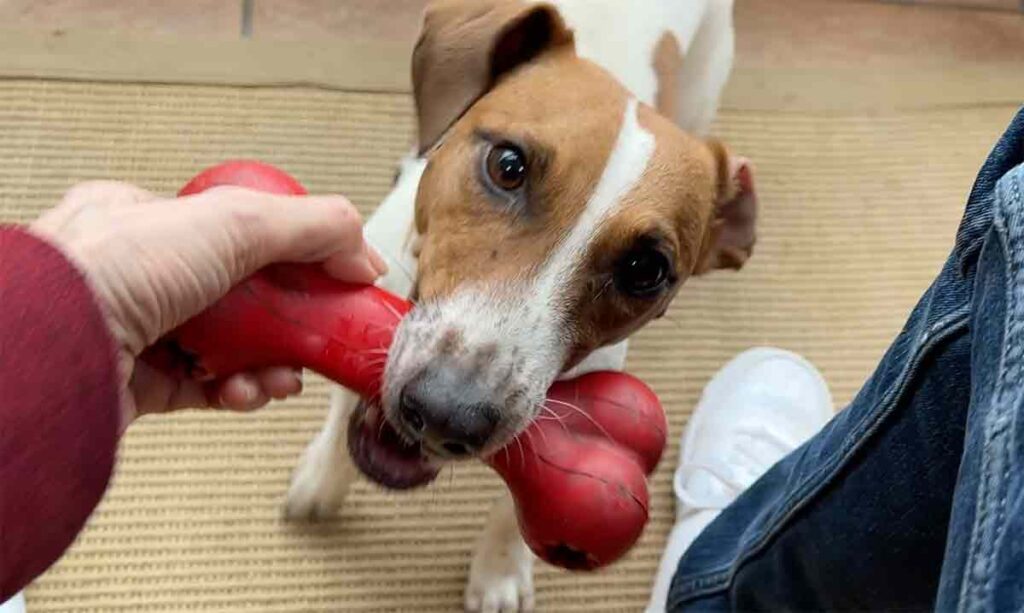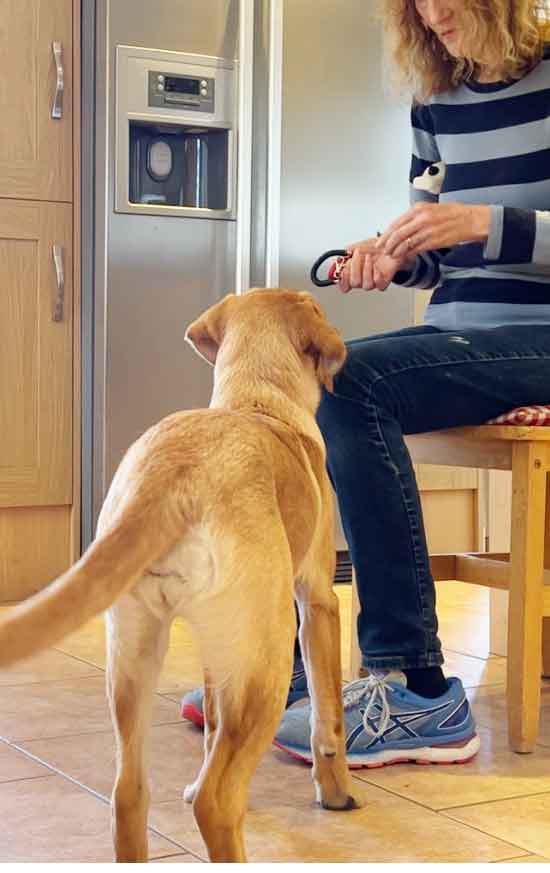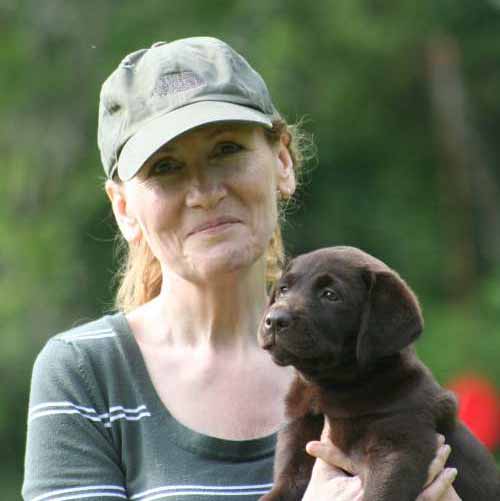
Dog training is largely unregulated around the world. There are dog training qualifications that can be obtained in some areas, and some trainers are members of professional bodies that set standards and require members to agree to them. However, there is very little in the way of legal requirements for dog trainers to be either educated, or experienced.
Comparing Dog Trainers
So when it comes to choosing a trainer, whether you intend to take your dog to a class or are looking for help at home, you need to think about these three different factors that will give you a clue as to their abilities and competence.

Dog Training Experience
Experience matters. Even when you have trained many dogs, as I have, each dog will give you challenges that you’ve never experienced before. And with each challenge you learn something new. So it’s important to hire a dog trainer that has plenty of experience.
Do You Need A Trainer That Has Trained A Variety Of Different Breeds?
Up to a point, experiencing a range of different breeds can be helpful. Temperaments do vary between different types of dog. And handling a very tiny dog can require different techniques from handling a very large one.
Do You Need A Specialist Dog Trainer?
A trainer that specializes in one particular breed or type of dog can also have a lot to offer. Someone that teaches pet dog training classes will have experienced a range of different types of dog, but a retriever trainer for example is likely to have a deeper understanding and experience of the retriever training process. And a protection dog specialist will have a better understanding of what goes to make a safe and effective guard dog.
In-depth experience may be important to you if you want to get involved in a sport such as hunting, or agility.
When it comes to hunting dogs, a trainer of retrievers, spaniels or pointing dogs is likely to be more helpful to you than a general pet dog trainer. And when it comes to agility, you might want to look for a trainer of border collies or working english cockers, two breeds that excel at this sport.
Dog Training Credentials
I started out by saying that dog training is widely unregulated. By that I am referring to the legal restrictions (or lack of them) that apply to dog trainers. So what do I mean by dog training credentials?
There are broadly two types of dog training credential – competitive success, and qualifications.
Competitive Success
You may benefit by looking for a trainer with a history of success in a dog sport. Many obedience trainers for example, have a background in agility. And some come from competitive obedience or Schutzhund training.
Someone that has succeeded in these highly competitive sports is likely to be very good at training dogs to compete in them. But bear in mind these are generally ring based sports. Keeping a dog at heel in the real world, is a very different skill from doing so in an agility arena or training zone. So its a great idea to observe how your trainer’s dogs behave outside of the ring.
It’s also worth bearing in mind that just because someone is great with dogs, does not necessarily mean that they are a great teacher of people. And your trainer will be training you, not your dog. That part is your job. So you need to look for people skills as well as trophies or rosettes.
Qualifications
Ring based sports allow dogs to succeed under highly controlled conditions. If you simply want your dog to be obedient off leash outdoors, or to be better behaved when visitors come around, you may find a local pet dog trainer is a better bet.
There are a range of different qualifications that pet dog trainers can work towards that will help you to discriminate between them. Dog training qualifications to look for in the USA are CPDT-KA, and CPDT-KSA.
Beware letters after a trainer’s name that simply denote membership of a body that requires no evidence of competence. Or where anyone can join if they pay a fee.
At minimum a body that gathers dog trainers as members should have a strong code of ethics and be willing to expel trainers that do not uphold them. You’ll find some of these trainers on our list of organizations that support force-free dog training
Dog Training Philosophy
There are two broad dog training philosophies that dominate the dog training community at the moment. The traditional, and the modern.
Traditional Dog Training
The traditional philosophy of dog training is founded on principles such as dominance and leadership. The language of traditional training is permeated with words like ‘alpha’, and ‘pack’. And the techniques used are based on skills that have been passed down from trainer to trainer over many generations.
They rely on the trainer’s ability to intimidate the dog, and power over the dog is essentially maintained through fear. This fear is usually referred to as ‘respect’. These techniques, when they work, can get rapid results that look great on TV and largely for this reason are very popular on Youtube.
Modern Dog Training
Meanwhile the wider dog training community is quietly moving across to modern training methods. These are the methods being taught in colleges and by professional bodies that accredit our next generation of dog trainers. They are the methods that have been adopted by military and service dog professionals. The therapy dogs, guide dogs, and drug detection dogs that you’ll see working in public from time to time are all being trained by these methods. Modern methods are science-based, reliable, and free from fear and intimidation. But they take a little time and effort and they don’t make such great TV as some traditional methods.
For this reason, although traditional methods are largely falling out of favor, its often these methods that are getting the most attention. And it is traditional methods that you are most likely to come across when you search for an answer on the internet, to your dog training problem.
Why You Need A Modern Dog Trainer
Unless you are closely mentored by a very skilled and caring traditional trainer, it is possible for you to do a lot of harm to your dog using traditional methods. You could make your dog fearful of you, and studies have shown that dogs raised using even mild forms of punishment are more likely to become aggressive over time.
Many traditional trainers have been bitten at some point. Sometime badly. And many pet dog owners lack the characteristics that enable them to dominate or intimidate their dogs.
This makes it difficult for pet dog owners to get the same results with their dog as the trainer does. A common complaint is ‘my dog is so good for my trainer but they still don’t listen to me’. That’s because the dog is afraid of your trainer (who will probably refer to this fear as ‘respect’)
Modern methods are now extremely effective and don’t rely on you having some kind of talent or dog whispering skills. You just need to follow the instructions, practice and watch the results as your dog improves. Modern methods are also enjoyable for both dogs and their handlers. It’s a win-win situation.
Which Matters Most?
While anyone can set themselves up as a dog trainer, and take money from pet dog owners in exchange for tuition, a bad trainer can do a lot of harm to the relationship between you and your dog. So it’s important to check out any trainer you plan on hiring.
Because there is no compulsion on established dog trainers to acquire credentials many don’t bother. This does not make them bad trainers. They are most likely just very busy people. So experience is probably more important than credentials at this point in time. However, without credentials, you will need to be extra careful in checking that your trainer has the right approach
And so, in my view, the trainer’s philosophy is the first factor you need to consider.
Your trainer’s philosophy will govern both the methods they use, and their willingness to constantly work on their professional development.
All the experience in the world won’t make the trainer a better trainer, if they aren’t willing to learn from the latest evidence and research.
Best For Beginners
If you are a relative beginner it’s really important to get a good start with a positive reinforcement trainer. This will teach you the basics of how dogs learn and how to modify your dog’s behavior.
These trainers are usually easy to identify as they use the language of modern training. You’ll hear them talk about science based training, reinforcement, and the use of food rewards. Traditional trainers tend to use the language of dominance. They often promise quick results. And many are opposed to the use of food in training.
If you are very confident in your own philosophy and techniques, then you can definitely learn a lot from an experienced trainer with a different philosophy from yours. And you’ll be able to adapt some of their methods to fit in with your own.
But to get off to a great start, and really learn the nuts and bolts of changing your dog’s behavior for the better, you need information and practical demonstrations of modern dog training principles and techniques.
Making Your Choice
Experience, credentials, and a modern training philosophy, are all important considerations when you choose your trainer. But if you’re new to training, or new to positive reinforcement, I recommend prioritising trainers with a positive reinforcement philosophy.
Modern training methods are effective, fun, and kind. They will give you and your dog the tools to work together more productively going forward. And will help you both to enjoy your time training together!

Free Training Tips
Get Pippa's free dog training tips delivered to your inbox

 Pros And Cons Of Tethering A Dog
Pros And Cons Of Tethering A Dog